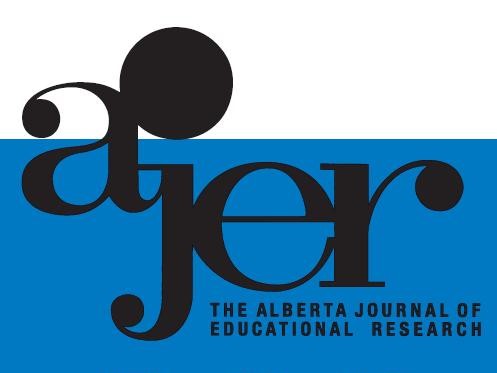Considerations for Best Practice when Conducting Qualitative Research with Deaf and Hard of Hearing (D/HH) Participants
DOI:
https://doi.org/10.55016/ojs/ajer.v69i4.72904Abstract
A review of existing research with deaf or hard of hearing students reveals a focus on academic and social outcomes utilizing predominantly quantitative methods of research. Quantitative research typically generates numerical data and the measurement of discrete variables, whereas qualitative research allows researchers to delve deeper into what cannot easily be put into numbers: lived experiences, meaning, and context. To gain a nuanced understanding of the experiences and perspectives of students who are deaf, more qualitative research is needed. Qualitative research on deaf students’ perspectives has the potential to contribute to the development of beneficial practices that will support students. This article describes considerations and best practices when conducting qualitative research with deaf participants, followed by an example of how such practices were applied in a research study on deaf students’ lived experiences of inclusion.
Keywords: Qualitative research; Deaf participants; hard of hearing participants; best practices; participants’ perspectives
Un examen des recherches existantes sur les élèves sourds ou malentendants révèle que l'accent est mis sur les résultats scolaires et sociaux en utilisant principalement des méthodes de recherche quantitatives. La recherche quantitative génère généralement des données numériques et la mesure de variables discrètes, alors que la recherche qualitative permet aux chercheurs d'approfondir ce qui n'est pas facilement quantifiable : les expériences vécues, la signification et le contexte. Pour parvenir à une compréhension nuancée des expériences et des perspectives des élèves sourds, il est nécessaire de mener davantage de recherches qualitatives. La recherche qualitative sur les perspectives des élèves sourds a le potentiel de contribuer au développement de pratiques bénéfiques qui soutiendront les élèves. Cet article décrit les considérations et les meilleures pratiques pour mener une recherche qualitative avec des participants sourds, suivi d'un exemple de la façon dont ces pratiques ont été appliquées dans une étude de recherche sur les expériences vécues par les élèves sourds en matière d'inclusion.
Mots clés : recherche qualitative ; participants sourds ; participants malentendants ; meilleures pratiques ; perspectives des participants
Downloads
Published
Issue
Section
License
UNIVERSITY OF ALBERTA COPYRIGHT LICENSE AND PUBLICATION AGREEMENT
If accepted, authors will be asked to sign a copyright agreement with the following points:
A. Where there is any inconsistency between this Copyright License and Publication Agreement and any other document or agreement in relation to the same subject matter, the terms of this Agreement shall govern.
B. This document sets out the rights you are granting in relation to publication of your article, book review, or research note entitled (the “Article”) through inclusion in the academic journal titled Alberta Journal of Educational Research (the “Journal”) published through the Faculty of Education, representing the Governors of the University of Alberta (the “Journal Editor”).
C. There will be no payment to you for this publication and grant of rights. In consideration of the agreement to publish the Article in the Journal:
1. You are warranting that:
- the content of the Article is your original work, and its content does not contain any material infringing the copyright of others; or, where the Article is not entirely your original work, you have obtained all necessary permissions in writing to grant the rights you are giving in this agreement;
- the content of the Article does not contain any material that is defamatory of, or violates the privacy rights of, or discloses the confidential information of, any other person;
- the Article has not been published elsewhere in whole or in part, and you will not allow publication of the Article elsewhere without the consent of the Journal Editor;
- the names of all co-authors and contributors to the Article are:
2. You agree to license the copyright in the Article to the Journal Editor, on a worldwide, perpetual, royalty free basis; and to the extent required by the terms of this agreement. You shall retain the right at all times to be acknowledged as the/an author of the Article.
3. You further agree that the Journal Editor has the entitlement to deal with the Article as the Journal Editor sees fit, and including in the following manner;
- The right to print, publish, market, communicate and distribute the Article and the Journal, in this and any subsequent editions, in all media (including electronic media), in all languages, and in all territories, ing the full term of copyright, and including any form of the Article separated from the Journal, such as in a database, abstract, offprint, translation or otherwise, and to authorize third parties to do so;
- The right to register copyright of the Journal;
- The right to edit the Article, to conform to editorial policy as the Journal Editor sees fit.
4. If any co-author or contributor to the Article does not sign this agreement, the Journal Editor reserves the right to refuse to publish the Article.



